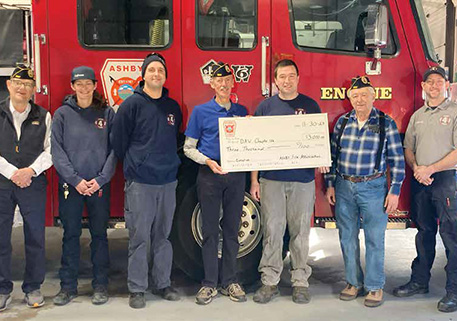 New suicide prevention effort connects veterans with messages of hope
New suicide prevention effort connects veterans with messages of hope
From basic training to combat, receiving mail is a time-honored military tradition. A letter from home goes a long way to boost morale by offering a glimpse of something familiar and comforting. But research indicates that the steady flow of caring messages can do more than just enhance one’s mood; it can also lead to lower rates of suicide.
To bolster suicide prevention efforts last summer, the Department of Veterans Affairs launched the Caring Letters Program. The evidence-based initiative involves sending recurring messages to veterans enrolled in VA health care who contacted the Veterans Crisis Line.
“It’s a series of about nine letters that veterans receive after they call the Veterans Crisis Line that indicates care, concern and connection,” said Dr. Lisa Kearney, VA deputy director for suicide prevention. “It’s focused on those individuals because we have all of their information and they’re identifiable.”
In each letter, veterans are reminded of their resources, such as mobile apps and telephone numbers related to their benefits.
The program follows the 2019 VA and Department of Defense clinical practice guidelines, which encourage brief, nondemanding follow-up communication that engages veterans by informing them of available treatment options.
“It’s a way to reconnect, not only with treatment options, but to remind them that there are folks here that care for them,” added Kearney.
This simple yet effective approach to suicide prevention follows medical research showing that those receiving thoughtful letters can reduce their likelihood of suicide. In a 2001 study, published in the medical journal Psychiatric Services, scientists at the University of California San Francisco School of Medicine split 843 patients into two groups: those who received a letter at least four times a year and those with no further contact.
“Patients in the contact group had a lower suicide rate in all five years of the study,” the study’s authors concluded.
The VA has mailed 172,000 letters to just over 47,500 veterans during the first five months of the program.
Maintaining contact—even via a text message or video chat—can go a long way to fight isolation, said Kearney, particularly during the pandemic. But writing letters to help combat feelings of aloneness and desperation isn’t only being coordinated at the higher levels of the VA. Some VA employees are taking it upon themselves to bring heartfelt messages to the people they serve.
Like nearly all veterans residing in VA community living centers across the country, residents at the VA Central Western Massachusetts Healthcare System are physically isolated due to COVID-19 safety precautions, and visitors are prohibited. So when Navy veteran and VA registered nurse Tim Moran saw an opportunity to lift spirits, he posted a Facebook status encouraging people to send a heartfelt message.
“I asked people to write to our veterans in the [community living center] on the main campus since they can’t leave or receive visitors for their own safety,” Moran said in a VA blog post in July. “We received between 115 to 120 pieces of mail in response to that first Facebook post. Every veteran received at least three or four letters during the first mail call.”
While VA mental health professionals and other individuals involved with the Veterans Crisis Line write the Caring Letter Program’s correspondence, Kearney challenges anyone to consider what a simple, caring message can do for the veterans in their communities.
“When those thoughts come up of someone in your life that you care about, make it a point to act, not to do it later, but to say, ‘OK, I’m going to stop right now and do that,’” she said.
Campaigns like this can easily translate to DAV and DAV Auxiliary at the chapter and unit levels.
“Being there is such an important part of what we do as veterans,” said National Commander Butch Whitehead. “It only takes a few minutes of your time, but checking in and sending or delivering messages can make a world of difference in a veteran’s frame of mind and give them a reason to stay connected.”








